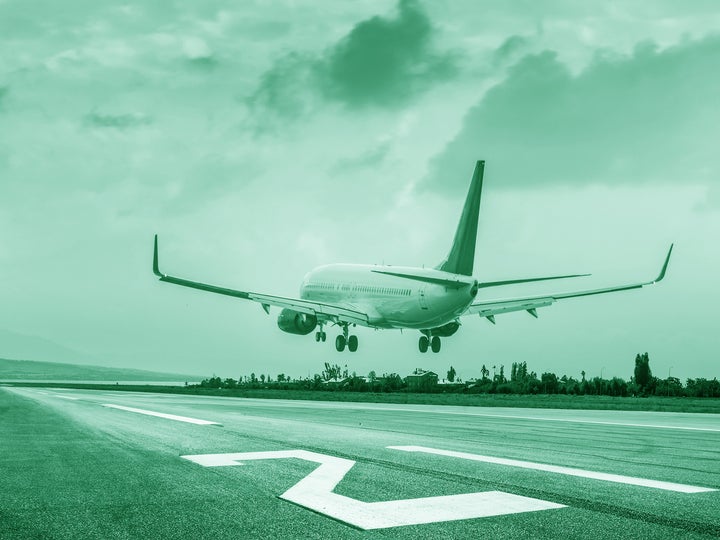What are ‘ghost flights’ and why are they so controversial?
‘Absurd and revolting’ practice under increasing fire from environmentalists

Your support helps us to tell the story
From reproductive rights to climate change to Big Tech, The Independent is on the ground when the story is developing. Whether it's investigating the financials of Elon Musk's pro-Trump PAC or producing our latest documentary, 'The A Word', which shines a light on the American women fighting for reproductive rights, we know how important it is to parse out the facts from the messaging.
At such a critical moment in US history, we need reporters on the ground. Your donation allows us to keep sending journalists to speak to both sides of the story.
The Independent is trusted by Americans across the entire political spectrum. And unlike many other quality news outlets, we choose not to lock Americans out of our reporting and analysis with paywalls. We believe quality journalism should be available to everyone, paid for by those who can afford it.
Your support makes all the difference.The European Union is facing increasing pressure to drop rules that necessitate airlines flying thousands of empty flights, dubbed ‘ghost flights’, in order to keep coveted airport slots.
Ghost flights have long caused anger among environmental groups, and Greenpeace dubbed them “absurd and revolting”.
What is a ghost flight?
EU regulations dictate that carriers must operate a certain percentage of their scheduled flights to hang onto their take-off and landing slots at airports – and failure to do so means they forfeit the slots.
Airlines taking off from the continent must use 80 per cent of their slots or lose them to someone else, although the percentage dropped during the coronavirus pandemic.
This means airlines continue to fly planned routes regularly even though there are few or no passengers at all on board, costing money and spewing tonnes of carbon emissions into the atmosphere.
Lufthansa Group, the parent company that owns brands including Lufthansa, Swiss International Airlines, Austrian Airlines, Eurowings and Brussels Airlines, made headlines after admitting 18,000 flights would be flown empty this winter, including 3,000 Brussels Airlines services, due to the ‘use it or lose it’ airport slot rules.
The Belgian federal government wrote to the European Commission in response, calling for a change to the strict rules on maintaining slots and citing the EU’s carbon reductions targets as a reason to reconsider.
Olivier Jankovec, director general of Airports Council International Europe, said: “A few airlines are claiming they are forced to run high volumes of empty flights in order to retain airport slot usage rights. There is absolutely no reason why this should be the reality.”
Why are the ‘use it or lose it’ rules in place?
The aim of these rules are to ensure the aviation market is competitive by incentivising airlines to fly, trade or hand back unused airport slots so that other airlines, including new market entrants, can fly them instead.
In March 2020, The Independent reported that, despite running just a tiny number of rescue flights during the coronavirus lockdown, Ryanair still appeared to be flying most of its fleet on a regular basis.
Europe’s biggest budget airline was operating frequent flights where aircraft took off, circled the airport and landed again.
The reason for operating these empty flights was to maintain the aircrafts’ operational availability.
Planes that have been grounded for a significant period have to be checked over before they are cleared to fly again, a process that keeps them from flying for even longer and costs the airline money.
Why are environmental groups angry about ghost flights?
Air travel accounts for about 2.5 per cent of global carbon dioxide emissions, and campaigners claim the thousands of ghost flights that take place every year are a major driver of climate change.
Greenpeace UK’s policy director, Doug Parr, said: “We know that the airline industry puts profit ahead of people and the planet but the absurdity of ‘ghost flights’ takes its recklessness to new heights.
“Flying no one to nowhere for no reason other than to keep runway slots is absurdly polluting and wasteful. This pointless airport rule urgently needs overhauling as it makes zero sense in a pandemic when demand for air travel has shrunk so much.
“These empty flights are a backwards step in a climate emergency when we need fewer flights, not more. They must be grounded immediately.”
Campaign group Stay Grounded called the empty planes a flagrant example of ‘bulls**t flights’, a name it gives to non-essential journeys like short-haul trips, private jets, and weekend shopping trips.
The flights also contribute to air pollution, which is having a damaging effect on the health of city-dwellers across the globe.
Research from George Washington University in the US found approximately 86 per cent of people living in urban areas worldwide, or roughly 2.5 billion people, are exposed to unhealthy particulate matter levels in the air – and air travel is a major polluter – leading to 1.8 million excess deaths in cities globally in 2019.
Join our commenting forum
Join thought-provoking conversations, follow other Independent readers and see their replies
Comments